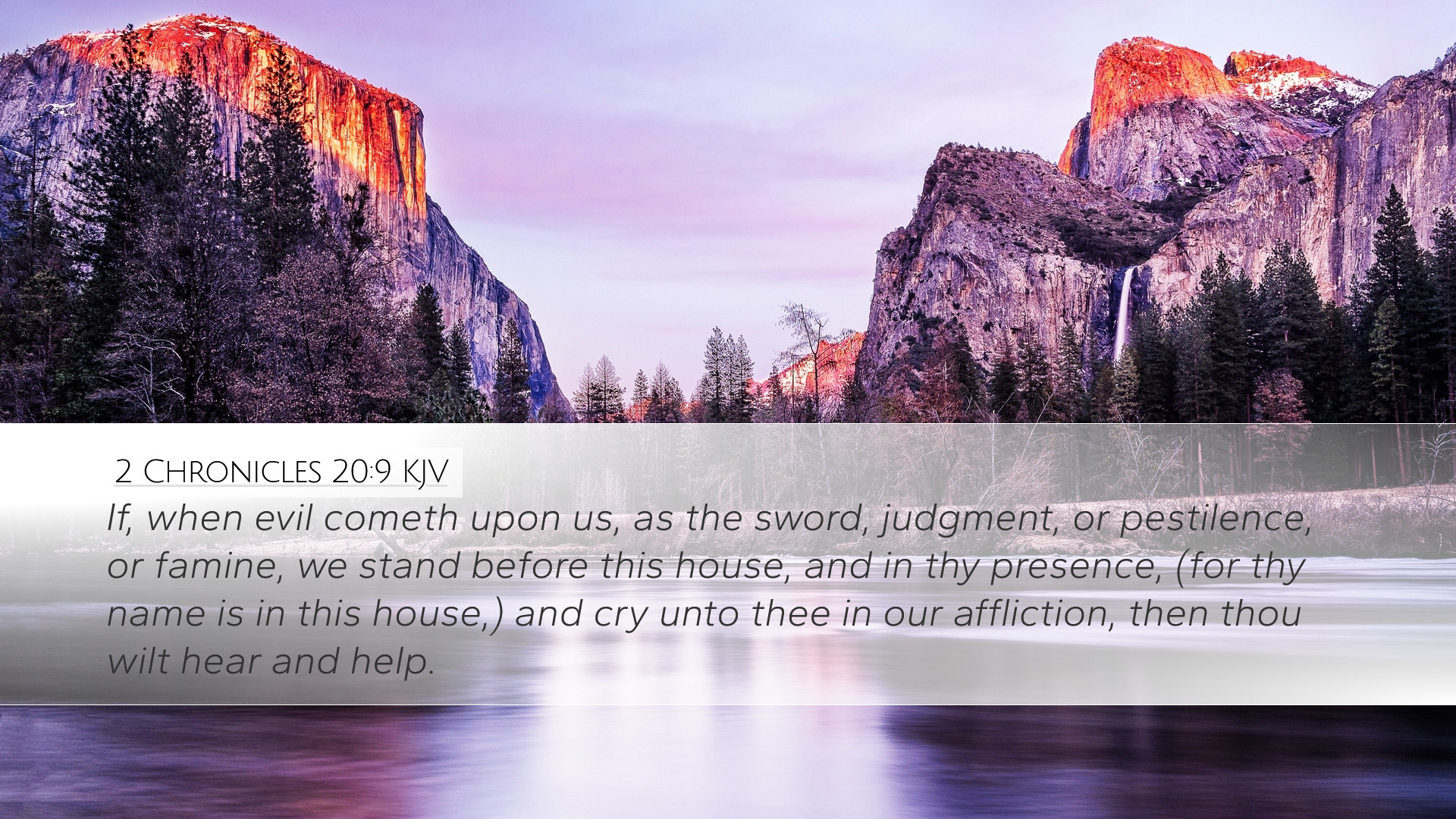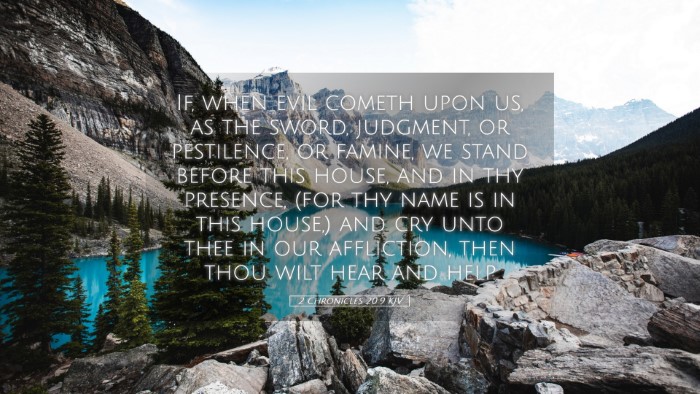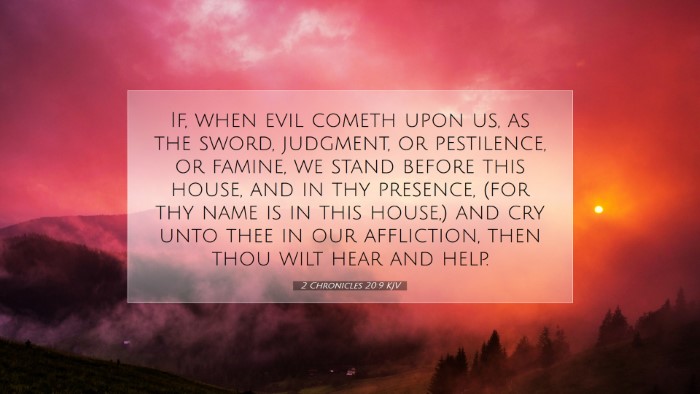Commentary on 2 Chronicles 20:9
Bible Verse: "If when evil cometh upon us, as the sword, judgment, or pestilence, or famine, we stand before this house, and in thy presence, (for thy name is in this house,) and cry unto thee in our affliction, then thou wilt hear and help."
Introduction
The passage from 2 Chronicles 20:9 highlights a profound moment in the history of Israel, reflecting on the themes of divine appeal, communal supplication, and the assurance of God's presence in times of distress. Found within a prayer by King Jehoshaphat, this verse serves as a critical component in understanding how the Israelites perceived their covenantal relationship with God, especially during trials.
Historical Context
This verse is situated during a time of impending crisis as Jehoshaphat, king of Judah, faced a formidable alliance of enemies. The context provides a backdrop for understanding the earnest appeal to God that Jehoshaphat presents. The enemies are not just military threats, but existential challenges to the faith and survival of the nation.
Key Themes
- Covenant Relationship: The invocation of standing “before this house” signifies the enduring relationship between God and His people, reaffirming the idea that the temple is a physical manifestation of God’s promise.
- Urgent Prayer: The emphasis on crying out in affliction implies a deeper spiritual awareness; it calls for a collective appeal to God in faith during dire circumstances.
- Divine Assurance: The promise that God will “hear and help” reinforces the belief that, despite adversity, God remains attentive to the cries of His people.
Commentary Insights
Matthew Henry’s Perspective
Matthew Henry reflects on this verse by emphasizing the proactive nature of prayer in a community of faith facing crisis. He asserts that true recognition of God’s sovereignty leads to both anxiety in circumstances and faith in divine intervention.
Henry notes that the phrase "if when evil cometh" suggests a proactive approach that acknowledges the potential for calamity while providing a solution—standing before God in prayer. He contends that God's name being in the house not only provides comfort but serves as a basis for their appeal, illustrating the theological underpinnings of God's presence associated with His covenant.
Albert Barnes’ Analysis
Albert Barnes offers a detailed analysis of the conditions presented in this verse. He points out that King Jehoshaphat reminds the people of the conditions set forth in the covenant—standing before God in prayer during crises is both a religious obligation and a source of hope.
Barnes emphasizes that prayer during tribulation is not only a plea for intervention but also an act of reverence that acknowledges God’s sovereignty and promise. He reminds us that God's willingness to hear and help is contingent upon the sincerity of the people's repentance and their faith in His power.
Adam Clarke’s Interpretation
Adam Clarke provides an exposition that delves into the implications of standing "before this house.” He elaborates that this signifies the sacredness of the temple and its role as a point of communion between God and man. Clarke posits that this act demonstrates a deep reliance on God’s mercy and an acknowledgment of the seriousness of sin as a barrier to divine assistance.
Clarke draws attention to the type of afflictions mentioned—sword, judgment, pestilence, and famine—indicating a comprehensive understanding of human struggles. His insights build upon the necessity of collective prayer, suggesting that when individuals come together in humility and faith, divine presence and assistance are guaranteed.
Theological Reflections
The insights gathered from these noted commentators reveal significant theological constructs relevant for the modern church, particularly in pastoral care and communal worship. The act of praying together in times of struggle reaffirms the communal aspect of faith that runs deep throughout biblical history.
The Importance of Unity in Prayer
Jehoshaphat’s leadership demonstrates how unity in prayer can facilitate divine intervention. It serves as a model for contemporary congregations seeking solace amidst societal upheavals and personal trials.
God’s Presence in Affliction
Another profound takeaway is the assurance of God’s presence even in moments of collective despair. This serves to remind us that divine assistance is coupled with the recognition of human need and frailty. The act of crying out, as emphasized in this verse, is both a call for help and an acknowledgment of God's sustaining grace.
Conclusion
In summary, 2 Chronicles 20:9 encapsulates a timeless truth about the nature of prayer, the importance of community in invoking God's presence, and the assurance of divine aid during trials. Drawing from the insights of respected Bible commentators, we gain a richer understanding of how this passage not only shaped the faith of the Israelites but serves as a foundation for understanding God's responses to His people today.


